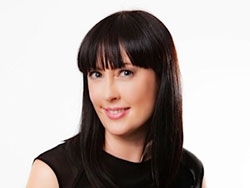Occupational therapists (OTs) specialising in mental health draw on a range of psychological and occupational therapy strategies to help people understand and cope with their daily function.
Mental health OTs assist people who are struggling with adverse life circumstances, such as grief and adjustment, emotions, stress and parenting, and can help people with severe and complex mental health conditions, from anxiety to
depression.
Subscribe for FREE to the HealthTimes magazine
These practitioners also assist with developmental conditions, such as
Autism Spectrum Disorder (ASD), or can help children struggling with medical conditions, such as cystic fibrosis or juvenile diabetes.
Catherine Daly, a mental health OT and director of Brisbane private practice
What About Play, says mental health OTs help understand how people function in their occupation, whether that’s as a child, student, parent or other adult - supporting them to engage more successfully in their roles.
“For instance, an OT would look at what is impacting someone’s functioning - their illness presentation, their current coping, their relationships, their development, or medical needs - and then assist them to adaptively function in their roles again,” she says.
With about 17 years of clinical experience specialising in infant, child and parent mental health, Ms Daly helps children and their families with a range of developmental, psychosocial, mental health, academic and functional self-care difficulties, ranging from attachment behaviours to unsettled infants and parents with depression.
“Quite often, a baby might present with complaints of the child being irritable or difficult to settle,” she says.
“It might be that the child may have a developmental kind of difficulty, that’s identified or not identified, and it may be that the child is a hospital inpatient and the clinical team is struggling to find out how to make sense of what is going on for the child and the parent.
“You are looking at what is driving the child’s difficulties and also thinking a little bit about the parent’s struggles - thinking about grief and adjustment to their new parenting role.
“They may have fears about being in hospital and how they are going to manage a child with multiple disabilities or multiple medical issues or is difficult to settle, and then you help them think about the match between the two of them - so it makes it easy for them to get a sense of being together and enjoying each other.
“So, practically you may look at the child’s developmental play skills, or you may look at helping mum to feel confident in her role as parent, helping her as she becomes mother to this baby.”
Within sessions, Ms Daly says her role is to provide clients with a safe space to tell their story.
“This involves organising a client’s experiences, thinking with them about their intense feelings, giving voice to things left unsaid, and helping them make sense of how they can move forward,” she says.
“As this is happening, I am also sensitively assessing when to offer safe and appropriate strategies.”
Mental health OTs work in a range of settings from child and youth mental health, and adult mental health services. They can also be found in settings such as hospitals, working in child, maternity or in general adult wards.
A member of
Occupational Therapy Australia’s mental health special interest group, Ms Daly says mental health OTs use a range of evidence-based therapies which draw on core OT and psychological theories, such as cognitive, family and psycho-dynamic therapies.
She says a lack of understanding about the work of mental health OTs exists, from both inside and outside the health professions - even from within the OT discipline.
Mental health OTs recently told OT Australia that their specialised skills are being overlooked when OTs refer their clients for mental health intervention, with their colleagues more likely to refer their patients to psychologists instead of mental health OTs.
“It’s not a well recognised field,” Ms Daly says.
“There is certainly lots of automatic referrals to psychologists just because that’s so well recognised.
“We’re slowly getting the idea out there that we too provide these particular types of services,” she adds.
“There’s a lot of advocacy, there’s a lot of working together with other specialists to show them the types of services you can provide clients, and the types of things clients may benefit from by seeing an OT.”
To become a mental health
occupational therapist, you must complete an undergraduate degree, such as the Bachelor of Occupational Therapy, which is generally a four year course. Students can opt for mental health clinical placements throughout their course.
Registered OT graduates can choose to work in a mental health field or setting, and have the option to pursue a range of avenues for postgraduate study in mental health.
Ms Daly, who also completed a Master of Mental Health (Psychotherapy), says she loves working with families and particularly helping parents, equipping them with the essential skills they need to support their child.
“It’s really drawing on client’s experiences - helping the child understand themselves, depending on their development, and then providing support for the parents to match and respond to their child’s needs.”













